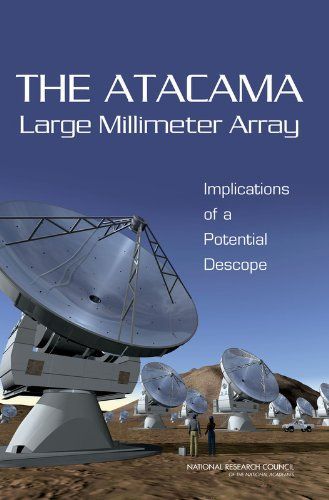
The Atacama Large Millimeter Array Implications of a Potential Descope
The 1991 NRC decadal survey for astronomy and astrophysics included a project called the Millimeter Array (MMA). This instrument would be an array of millimeter-wavelength telescopes intended to capture images of star-forming regions and distant star-burst galaxies. With the addition of contributions form Europe, the MMA evolved into the Atacama Large Millimeter Array (ALMA), a proposed array of 64, 12-meter antennas. The project is now part of the NSF Major Research Equipment and Facilities budget request. Increased costs, however, have forced the NSF to reconsider the number of antennas. To help with that review, NSF asked the NRC to assess the scientific consequences of reducing the number of active antennas from 60 to either 50 or 40. This report presents an assessment of the effect of downsizing on technical performance specifications, performance degradation, and the ability to perform transformational science, and of the minimum number of antennas needed.